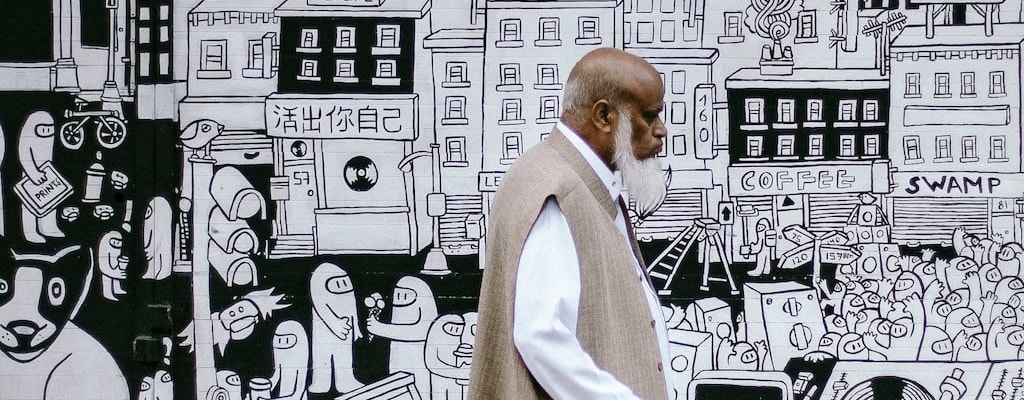folk devil: Idiom Meaning and Origin
What does ‘folk devil’ mean?
A "folk devil" refers to a person or group who is portrayed as a threat to society or social norms. They are often scapegoated and blamed for various problems, leading to moral panic and public outcry.

Idiom Explorer
The idiom "the devil" refers to a person or entity that is considered to be evil, dangerous, or destructive. It is often used to emphasize the negative qualities or actions of someone or something, highlighting their malicious or harmful nature.
The idiom "horror show" is commonly used to describe a situation or event that is extremely unpleasant, horrifying, or disturbing.
The idiom "horror show" is a commonly used phrase in the English language that has its origins in the world of horror movies. While its exact origins are uncertain, the idiom has become increasingly prevalent in contemporary language, particularly in American English.
The idiom "hit the fan" is used to describe a situation where something goes terribly wrong or chaotic, often as a result of a secret or scandal being revealed. It implies a sudden and explosive response to the situation.
The idiom "ghost at the feast" describes a person who is unwelcome or unsettling in a particular situation or group gathering, usually because of their past actions or a sense of discomfort they bring. This individual's presence may disrupt the festivities or create a sense of unease among others.
"Flutter the dovecote" means to cause discontent or agitation in a group of people or disturb the peace and tranquility of a situation.
The idiom "flutter the dovecote" is an intriguing and picturesque expression with a rich history. The phrase conveys a sense of disruption or commotion caused by stirring up a group of people or an organization. To fully understand the nuances and origins of this idiom, it is crucial to explore its etymology and usage in various contexts.
A "Faustian bargain" refers to a deal or agreement in which a person sacrifices their principles or values in order to achieve power, success, or wealth. The term originates from the character of Faust in German folklore, who made a pact with the devil in exchange for unlimited knowledge and worldly pleasures.
The idiom "fall foul" means to come into conflict or disagreement with someone or something, often resulting in negative consequences.
Fall foul is an idiom that has been in use for over 400 years. Its literal meaning can be traced back to the game of falconry, where a hawk or falcon would become entangled in a bush or thicket while chasing prey, known as "falling foul" of the vegetation.
An evil twin refers to a fictional character who looks identical to a person but has a sinister or malevolent nature.
The idiom "evil twin" is a popular phrase in English language and culture. It describes a person who closely resembles another individual, but has opposite moral or ethical characteristics. The origin of the idiom can be traced back to the 19th century and is derived from the concept of duality found in various mythologies and literary works.
The idiom "devil's luck" refers to someone who consistently has misfortune or bad luck. This phrase implies that the person's luck is so consistently bad that it appears as if the devil himself is responsible for their misfortunes.
The idiom "devil's luck" is a phrase that is predominantly used in informal English. Its origins can be traced back to the early 19th century, although its exact origin is unclear.
Unveiling the Demon
Folk devil is an idiom used to describe an individual or group of people who are blamed for societal problems or seen as a threat to the existing social order. It originated in the 1970s and is derived from the concept of a literal "devil" in folklore representing evil or wickedness. The term first gained prominence through the work of sociologist Stanley Cohen, who introduced it in his book "Folk Devils and Moral Panics."
Some related idioms that can help us understand the concept of a folk devil are "the devil" and "devil's advocate." When we refer to someone as "the devil," we mean they are a troublemaker or someone who causes problems. Similarly, a "devil's advocate" is someone who takes a contrary position in order to provoke discussion or argument. These idioms highlight the role that individuals or groups labeled as folk devils play in society.
This idiom is often used in the context of moral panics, where the media and public opinion focuses on a particular group or issue, exaggerating it as a threat to society. When a folk devil emerges, they are labeled as the source of societal problems and become the target of fear, condemnation, and social control measures. The concept of a folk devil can be seen in various historical and contemporary examples.
One example of the folk devil phenomenon is the Satanic Panic of the 1980s and 1990s. During this period, there was widespread fear and moral outrage surrounding allegations of Satanic ritual abuse. The media played a significant role in promoting this moral panic, leading to numerous false accusations and unjust prosecutions.
Folk devils can be identified by certain common characteristics. They are typically portrayed as an "other" or outsider, different from the mainstream population. They are often depicted as dangerous, immoral, and threatening to the established social order. They are seen as a corrupting influence on society, and their actions are blamed for various social problems.
It is important to note that the role of folk devils in society is not static. As the social and political landscape evolves, different groups or individuals may become the focus of moral panics and labeled as folk devils. This perpetuates a cycle where society seeks scapegoats for its problems, often diverting attention from more systemic issues.
The term "folk devil" and the concept it represents have drawn criticism for their potential to fuel prejudice, discrimination, and social injustices. By vilifying certain groups or individuals, society risks overlooking the complexities of the underlying issues and fails to address the root causes of problems.
Despite the criticisms, the concept of a folk devil continues to be relevant and applicable in contemporary society. It serves as a reminder of the power of media, public opinion, and societal biases in shaping perceptions and influencing social dynamics. The idiom highlights the tendency to scapegoat and demonize certain groups in times of social unease, reflecting the timeless human inclination to assign blame and seek simplistic explanations for complex issues.
Example usage
Examples of how the idiom "folk devil" can be used in a sentence:
1. The media portrayed the new video game as a folk devil, blaming it for corrupting the minds of young children.
2. The politician used the issue of immigration as a folk devil, scapegoating it to rally support for his campaign.
3. The recent outbreak of violence in the city has led to certain communities being unfairly labeled as folk devils, resulting in increased discrimination and prejudice against them.
More "Perception" idioms

